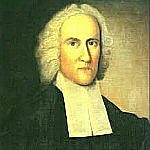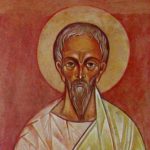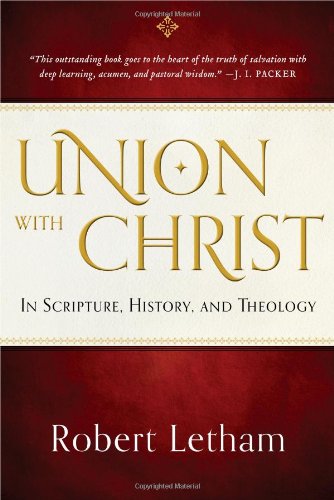Quotes about Communion
Nowhere is God so near to man as in Jesus Christ; and nowhere is Christ so familiarly represented to us, as in this holy sacrament.
At the heart of the present significance of the Lord’s Supper is our communion or fellowship with Christ, hence the term “communion service.” In coming to this service the believer comes to meet with Christ and have fellowship with Him at His invitation. The examination takes place because it would be hypocrisy for us to pretend that we are in communion with the Holy One while actually cherishing known sin in our hearts.
Taken from “Foundations of the Christian Faith-Book I” by James Montgomery Boice, page 603. (c)1986 InterVarsity Christian Fellowship of the USA, Revised edition. Used by permission of InterVarsity Press, P.O. Box 1400, Downers Grove, IL 60515. Get this book!
[The Lord] has given us a table at which to feast, not an altar on which a victim is to be offered; He has not consecrated priests to make sacrifice, but servants to distribute the sacred feast.
It is true that the Lord’s Supper is only for sinners. But within that group, it is only for repentant sinners.
We ought carefully and with the utmost seriousness and consideration attend the sacrament of the Lord’s Supper: this was appointed for this end, to draw forth longings of our souls toward Jesus Christ. Here are the glorious objects of spiritual desire by visible signs represented to our view. We have Christ evidently set forth crucified…. Here we have that spiritual meat and drink represented and offered to excite our hunger and thirst; here we have all that spiritual feast represented which God has provided for poor souls; and here we may hope in some measure to have our longing souls satisfied in this world by the gracious communications of the Spirit of God.
Throughout the book of Acts, baptism is always the first act that follows conversion… There is no indication is ever given in the New Testament that a person may share in the fellowship of the Lord’s Supper with other Christians, prior to being baptized… Peter’s strong and direct command in Acts 2:28…indicates this same order by not mentioning the Lord’s Supper, but rather baptism as the first priority for these new converts (also see Acts 10:47-48).
The Communion of the Body of Christ, Christian Communicators Worldwide, www.CCWtoday.org. Used by Permission.
Biblical understanding of the Lord’s Supper:
1. An act of obedience.
a. “Do this in remembrance of Me” – I Cor. 11:24.
b. An ordinance of the Church, ordained by Jesus as obedient act of remembrance.
2. An act of identification.
a. “Eat the Lord’s Supper” – I Cor. 11:20.
b. Jesus hosts the Supper for those who know Him and are identified with Him.
3. An act of covenant.
a. “This cup is the new covenant in My blood” – I Cor. 11:25.
b. New arrangement between God and men in Jesus Christ.
4. An act of participation.
a. “Communion in the blood and body of Jesus” – I Cor. 10:16.
b. Unified in “common union” of fellowship around Jesus Christ.
5. An act of thanksgiving.
a. “When He had given thanks He broke bread” – I Cor. 11:24.
b. Eucharist is transliteration of Greek “to give thanks.”
6. An act of representation.
a. “This is My body…this is My blood” – I Cor. 11:24, 25.
b. Must avoid crass materialistic literalism.
7. An act of commemoration.
a. “Do this in remembrance of Me” – I Cor. 11:24.
b. A memorial observance.
8. An act of examination.
a. “Let a man examine himself, and so let him eat” – I Cor. 11:28.
b. Self-examination .
9. An act of proclamation.
a. “As oft as you eat…you proclaim the Lord’s death” – I Cor. 11:26.
b. We proclaim that we are believers in the efficacy of Christ’s death, resurrection and life.
10. An act of anticipation.
a. “You proclaim the Lord’s death until He comes” – I Cor. 11:26.
b. Expectation of the consummation of Jesus’ work.
Excerpted from: Lord’s Supper, Study Outlines, 1999, www.christinyou.net. Used by Permission.
The four views…on the subject of the sacrament:
1. The Romish doctrine, or transubstantiation. This maintains the absolute change of the elements into the actual body and blood of Christ; so that though the elements of bread and wine remain present to the senses, they are no longer what they seem, being changed into the body, blood and divinity of Christ.
2. The Lutheran view, called consubstantiation. This maintains that after consecration the body and blood of Christ are substantially present, but nevertheless that the bread and wine are present, unchanged.
3. The Anglican view – that Christ is present in the sacrament only after the spiritual manner, and that His body and blood are eaten by the faithful after a spiritual, and not after a carnal manner, to the maintenance of their spiritual life and their growth in grace.
4. The Zwinglian, which declares the sacrament to be no channel of grace, but only a commemorative feast, admitting only a figurative presence of Christ’s body and blood.
We call this food the thanksgiving [Eucharist], and the only people allowed to receive it are those who believe our teaching and have received the washing for the remission of sins and for regeneration; and who live according to the commands of Christ.
This Passover [just before our Lord’s sacrifice], after 1500-plus years of Passovers, was the last divinely sanctioned and authorized Passover ever held. Any Passover ever celebrated after this one is not authorized by God. It is a remnant of a bygone economy, of an extinct dispensation, of a covenant no longer in vogue. It is vestigial. It serves no significant purpose. Jesus here celebrated the Passover as a way to bring it to its end. The bell tolled in the upper room for the old economy. Christ ended the long years of Passover and began a new memorial feast which He begins to institute in verse 26 [of Matthew 26]. And this new feast is the feast not of the old economy but the new economy, not the old covenant but the new covenant, not the Old Testament but the New Testament, not looking to a lamb in Egypt but a Lamb of God on a hill of Calvary. So, Jesus ends the old before He begins the new. And after having drawn the curtain on the Passover of the old economy, He institutes the feast of the new.
The Last Passover Part 2, The article originally appeared (www.gty.org/Resources/Sermons/2383_The-Last-Passover-Part-2) at www.gty.org. © 1969-2008. Grace to You. All rights reserved. Used by permission.
According to Paul in 1 Corinthians 11:17-34, the Lord’s Supper is several things all wrapped into one. It is first an opportunity to express the unity of the church (vv. 18-19, 33). It is therefore, second, a fellowship of God’s people (vv. 20-21, 33). Third, it is intended as a symbolic remembrance of Christ’s sinless life and atoning death on our behalf (vv. 24-25). Fourth, it is intended as a proclamation of Christ’s death, resurrection, and return (v. 26). And fifth, it is a built-in opportunity for self-examination (vv. 28-29) (Mark Dever and Paul Alexander).
The Role of the Ordinances, taken from The Deliberate Church, © 2005, Crossway Books, a division of Good News Publishers, Wheaton Illinois 60187, p. 107, www.crosswaybooks.org.
The purpose of the Lord’s Supper is to receive from Christ the nourishment and strength and hope and joy that come from feasting our souls on all that He purchased for us on the cross, especially His own fellowship.
Idolatry, the Lord’s Supper, and the Body of Christ, 1 Cor. 10:14-22, Sermon, Used by Permission: www.DesiringGod.org.
The benefits [the Lord’s Supper] confers, are spiritual, not physical. Its effects must be looked for in our inward man. It was intended to remind us, by the visible, tangible emblems of bread and wine, that the offering of Christ’s body and blood for us on the cross, is the only atonement for sin, and the life of a believer’s soul. It was meant to help our poor weak faith to closer fellowship with our crucified Savior, and to assist us in spiritually feeding on Christ’s body and blood. It is an ordinance for redeemed sinners, and not for unfallen angels. By receiving it we publicly declare our sense of guilt, and need of a Savior – our trust in Jesus, and our love to Him – our desire to live upon Him, and our hope to live with Him. Using it in this spirit, we shall find our repentance deepened, our faith increased, our hope brightened, and our love enlarged – our besetting sins weakened, and our graces strengthened. It will draw us nearer to Christ.
We must not make great knowledge, and great strength of grace, an indispensable qualification for communicants. A man may know but little, and be no better than a child in spiritual strength, but he is not on that account to be excluded from the Lord’s table. Does he really feel his sins? Does he really love Christ? Does he really desire to serve Him? If this be so, we ought to encourage and receive him. Doubtless we must do all we can to exclude unworthy communicants. No graceless person ought to come to the Lord’s Supper. But we must take heed that we do not reject those whom Christ has not rejected. There is no wisdom in being more strict than our Lord and His apostles.
Do we turn away from [the Lord’s Table] when it is administered? If so, how can we justify our conduct? It will not do to say it is not a necessary ordinance. To say so is to pour contempt on Christ Himself, and declare that we do not obey Him. It will not do to say that we feel unworthy to come to the Lord’s table. To say so is to declare that we are unfit to die, and unprepared to meet God. These are solemn considerations. All non-communicants should ponder them well.
Are we in the habit of coming to the Lord’s table? If so, in what frame of mind do we come? Do we draw near intelligently, humbly, and with faith? Do we understand what we are doing? Do we really feel our sinfulness and need of Christ? Do we really desire to live a Christian life, as well as profess the Christian faith? Happy is that soul who can give a satisfactory answer to these questions. Let him go forward, and persevere.
I don’t think my experience is unique when I say that I invariably find participation at the table of the Lord to be a profound moment of increased spiritual blessing. It is a means, through prayerful reflection, by which the Lord manifests His glory, love, mercy, and kindness to my religious consciousness. The Spirit works profoundly at the time of communion to awaken in my mind and to impress upon my heart the eternal significance of Christ’s finished work at Calvary and His love, not merely for people in general, but for me in particular.
Sacraments – Part 1, November 8, 2006, www.enjoyinggodministries.com. Used by Permission.
The ordinances do not impart eternal life to the believer, but they do confirm, strengthen, and heighten our awareness and enjoyment of that life. The bread and wine are means or instruments by which God quickens us to apprehend, understand, visualize, and experience the sanctifying influence of the Holy Spirit and his unique ministry of shining the light of illumination and glory on Jesus.
Sacraments – Part 1, November 8, 2006, www.enjoyinggodministries.com. Used by Permission.
1. Both the Catholic and Lutheran doctrines are based on the ubiquity (omnipresence) of the physical body of the resurrected Christ. Scriptural support for this notion is lacking.
2. In the words of Ronald S. Wallace (quoting Calvin): “The logic of the angels is incontrovertible. ‘He is not here,’ they said. ‘He is risen.’ The assigning of one place is the denial of any other. His body cannot be present in two places at once. When Christ said, Me ye have not always, He spoke of His bodily presence. It is true that He also said, Lo I am with you always, but these latter words refer to His divinity and majesty, and not to His humanity or flesh. With regard to that which was born of a virgin, apprehended by the Jews and nailed to the cross, wrapped in linen clothes, laid in the tomb and manifested in the resurrection, the final word is Me ye have not always. The body of Christ which is the ‘substance’ of the sacrament is in heaven, remains there throughout the sacramental action, and will remain there till the end of the world” (Calvin’s Doctrine of the Word and Sacrament, 204).
3. If the words, “This is my body,” are indeed literal, the Lutheran doctrine is incomplete. The latter view would demand something like, “This accompanies my body.” If “this”, the bread, truly “is” the body of Christ, it ceases to be bread. The RC view, though false, is at least more consistent on this point.
4. What of the statement, “This cup is the new covenant in my blood”? Will the RC maintain that the “cup” is transubstantiated into a covenant (whatever that means)? Will the Lutherans say that the new covenant is in, under, and with the cup? It would seem that both RCs and Lutherans must concede that Jesus employs figurative language, the very thing for which they so harshly criticize others.
Sacraments – Part 1, November 8, 2006, www.enjoyinggodministries.com. Used by Permission.
Insights from 1 Corinthians 11:23-34:
1. The Lord’s Supper is primarily designed to elicit or to stimulate in our hearts remembrance of the person and work of Jesus.
2. This remembrance is commanded. Participation at the Lord’s Table is not an option.
3. This remembrance entails the use of tangible elements. It isn’t enough simply to say, “Remember!” The elements of bread and wine are given to stir our minds and hearts.
4. It is a personal remembrance. We are to remember Jesus. The focus isn’t any longer on the Jewish Passover or the night of his betrayal or anything else. The focus is Jesus.
5. In this remembering there is also confession. In partaking of the elements we declare: “Christ gave his body and blood for me. He died for me.”
6. In this remembering we also proclaim the Lord’s death till he comes. This, then, is not merely an ordinance that looks to the past. It is an ordinance of hope that points to the future.
7. To partake of the Lord’s Table in an unworthy manner (v. 27) is to take it without regard to its true worth, not yours. To partake unworthily is to come complacently, light-heartedly, giving no thought to that which the elements signify.
Sacraments – Part 1, November 8, 2006, www.enjoyinggodministries.com. Used by Permission.
The bread and wine exist not simply to stir cognitive remembrance but to light a fire of unquenchable longing for the Savior whose body and blood they symbolize. These visible signs are also a means of grace by which the Spirit excites and intensifies our thirst for what Jesus alone can offer. So come to the eucharist hungry and feast on the Son of God.
One Thing, Christian Focus, © Enjoying God Ministries, 2004, p.41-42. www.enjoyinggodministries.com. Used by Permission.
Important things take place when believers observe [the Lord’s Supper]:
1. It is a vivid reminder of Christ’s broken body and shed blood (Matthew 26:26-28; 1 Corinthians 11:23-27).
2. We meditate on Christ’s death on our behalf (Matthew 26:28; 1 Corinthians 11:24).
3. It is a time of affirmation that we are participants in Christ’s sacrifice (1 Corinthians 10:16-17).
4. It is a reminder that someday we will be with the risen Christ in His Father’s kingdom (Matthew 26:29).
5. It is a proclamation that Christ will come again (1 Corinthians 11:26).
6. It bring to our minds that the New Covenant, in which all true believers participate, was established by Christ’s sacrificing of His flesh and His blood. This New Covenant carries both great privileges and important responsibilities (Matthew 26:28; 1 Corinthians 11:25).
7. It is a time of reflection during which participants should examine themselves to see if there are any broken relationships between them and other members of the body (1 Corinthians 11;27-28).
8. It is a time of rich fellowship for the body of Christ in which we affirm that though many, we are one in Christ (1 Corinthians 10:16-17; 11:17-22).
9. It includes a warning for those who participate in an unworthy manner (1 Corinthians 10:18-22; 11:29-32).
Life in the Body of Christ, Founders Press, 2006, p. 85-86, www.founders.org. Used by Permission. Get this book!
In the celebration of this sacrament we receive the renewed assurance of the forgiveness of our sins, and of our fellowship with Christ; unite with one another as members of His Body, and rejoice in the hope of His return to glory. Therefore, we will commune faithfully and thus renew our pledge of allegiance to Him.
We should remember that it is through Christ’s death that we are reconciled to God and each other. He has made us one, and we set our hearts on pursuing unity in love. The Lord’s Supper is a great time to pray and plan for oneness with our brothers and sisters. It is a time to explore new ways to be kind, compassionate, and forgiving.
When People are Big and God is Small, P&R Publishing, 1997, p. 206. Used by Permission.
















